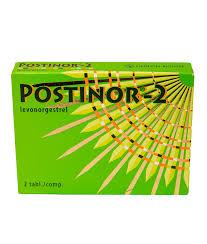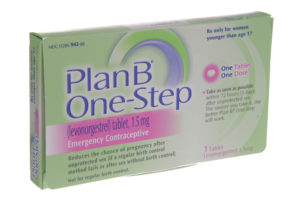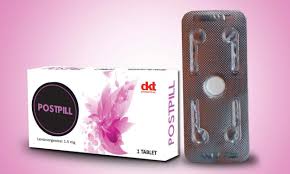Unintended pregnancies are pregnancies that are mistimed, unplanned or unwanted at the time of conception. Sexual activity without the use of effective contraception through choice or coercion is the predominant cause of unintended pregnancy.
Unintended pregnancy is a worldwide problem that affects women, their families, and society. Unintended pregnancy can result from contraceptive failure, non-use of contraceptive services, and, less commonly, rape. Abortion is a frequent consequence of unintended pregnancy and, in the developing world, can result in serious, long-term negative health effects including infertility and maternal death. In many developing countries, poverty, malnutrition, and lack of sanitation and education contribute to serious health consequences for women and their families experiencing an unintended pregnancy. Regardless of the cause, unintended pregnancy and its negative consequences can be prevented by access to contraceptive services including emergency contraception, safe and legal abortion services, and a society that allows women to determine their own reproductive choices. The availability of reliable contraception for all, regardless of race or ability to pay, is an essential first step. Women and adolescents require access to age-appropriate and culturally sensitive reproductive health care services, including emergency contraception.
Emergency contraception is a way to prevent pregnancy after unprotected sex. Often called the morning-after pill, emergency contraceptive pills (ECPs) are pills that can be taken up to 120 hours (5 days) after having unprotected sex.
How Do After Sex Pills Work?
Birth control pills (also called oral contraceptive pills and the “Pill”) are a type of female hormonal birth control method and are very effective at preventing pregnancy. The pills are small tablets that you swallow each day. Most pills contain two types of synthetic (man-made) female hormones: estrogen and progestin. These are similar to the estrogen and progesterone normally made by the ovaries. These pills are called “combination oral contraceptives,” and there are many different kinds.
The hormones in the pills prevent pregnancy by suppressing the pituitary gland, which stops the development and release of the egg in the ovary (ovulation) (see female reproductive anatomy image below). The progestin also helps to prevent the sperm from reaching the egg and changes the lining of the uterus.
Another type of pill contains only one hormone (progestin) and is called either the “progestin-only pill,” or the “mini-Pill.” It works by stopping ovulation and by helping to prevent the male’s sperm from reaching the egg.
Which After Sex pill should I take?
First, talk with your health care provider about whether the pill is right for you. If it is, discuss which pill and what dosage is best for you. The combined pill with both estrogen and progestin is slightly more effective than the progestin-only pill. However, some women can’t take estrogen, so it’s better for them to take the progestin-only pill.
How effective is the Pill at preventing pregnancy?
The pill is very effective if you take it exactly as you are supposed to – one pill a day, taken at the same time each day. You should also use back-up contraception such as condoms if you have diarrhea or vomiting, or are taking a medication that could change the effectiveness of the birth control pill. Using condoms is always important to decrease your chances of getting a sexually transmitted infection (STI). 10 Top Signs Your Period Is Coming Tomorrow
What are the possible side effects of birth control pills?
Most women have no side effects when taking the oral contraceptive pill. However, it’s possible to have irregular periods, nausea, headaches, or weight change especially during the first few months. Each type of oral contraceptive pill can affect a young woman differently.
Irregular periods: Spotting (you don’t need to use a regular pad, just a panty shield) or very light bleeding may occur during the first 1-3 weeks of starting the pill, or if you miss a pill. If the bleeding becomes heavier or lasts more than a few days or the bleeding happens after you have been on the pill for a few months, keep taking the pill and talk with your health care provider.
Nausea: Nausea occasionally occurs when you first start taking the pill and will often go away in a few days. It is less likely to occur if the pill is taken after dinner or with a bedtime snack.
Headaches: Headaches may occur because of stress at school or home, too little sleep, sinus infections, or migraines. The pill can make headaches better or worse. If your health care provider thinks your headaches are related to the pill, he/she may prescribe an oral contraceptive pill with a lower amount of estrogen or have you go off the pill for a short time. If you have migraine headaches, talk to your health care provider about whether the pill is right for you.
Mood changes: Feeling up and down emotionally can sometimes happen to anyone and is unlikely to be caused by the pill. Exercise and a healthy diet may help, along with talking to a counselor. Make sure you let your health care provider know how you are feeling.
Sore or enlarged breasts: Very occasionally, your breasts may become tender and/or get larger, but usually your breasts will stay the same. Breast tenderness usually goes away after a few months.
Weight change: Some teens gain weight and some teens lose weight while on the pill, but most stay exactly the same. Try to remember to watch your portion sizes, avoid fast food, and eat 5-13 servings of fruits and vegetables each day. Drink lots of water and don’t forget to exercise! Just in case you were wondering, there are no calories in the pill.
If side effects occur, they’re usually mild and go away in the first three to four months of taking the birth control pill. If you do have side effects, talk with your health care provider. If the side effects are uncomfortable or if they don’t go away, your health care provider may switch you to a different kind of birth control pill or a different method.
Most young women who take birth control pills have few or no problems. If you do have any of the following problems, call your health care provider right away.
Readily Available After Sex Pills
Postinor 2
Postinor-2, commonly known as the morning after pill, is used only as an emergency contraceptive. It is used to prevent pregnancy when taken within 72 hours (3 days) of unprotected intercourse. It is not used as a regular, long-term method of contraception.
How Postinor-2 works
The active ingredient in Postinor-2 is levonorgestrel. It is not known exactly how this medication works. It is thought to reduce the chance of pregnancy in two ways:
If taken before ovulation, it may delay the release of the egg.
If taken after ovulation, it may interfere with the transport of eggs and sperm.
How to use Postinor-2
Take one 750 μg tablet as soon as possible (within 72 hours of unprotected intercourse);
Take a second 750 μg tablet 12 hours after the first dose;
If you vomit within 2 hours of taking a tablet, talk to your doctor for an additional tablet.
You must take the second tablet exactly 12 hours after the first tablet. Work out a time when you will be able to take the second tablet (e.g. not in the middle of the night). This means you may have to delay the first dose, although the sooner the first tablet is taken, the greater the chance of the treatment being effective.
Postinor-2 can be taken at any time during the menstrual cycle, unless the menstrual period is late.
Postinor-2 has an 85% chance of preventing pregnancy. If taken within 24 hours, there is a 95% chance of preventing pregnancy.
If taken after 48-72 hours, there is a 58% chance. It is not known whether it is effective if taken more than 72 hours after unprotected intercourse.You should have a follow-up with your doctor within 3 weeks of taking.
However, Postinor-2 will not prevent you from catching any sexually transmitted diseases. Your next menstrual period is likely to arrive on time. However, it may be slightly early or late. If it is more than 1 week late, or if it is unusually light, perform a pregnancy test.
If you do not have a menstrual period after 3 weeks of taking Postinor-2, you may be pregnant. Consult your doctor.
Postinor-2 is intended as an emergency measure. If you need to take repeated doses, you should talk to your doctor about using long-term methods of contraception instead. SEE: Gynaecosid
Plan B One Step
Plan B One Step contains Levonorgestrel a hormone that can be used for emergency contraception. Emergency contraception should not be used as a routine method of birth control. Levonorgestrel can prevent pregnancy after unprotected sex. People sometimes call it the “morning after pill.” But you don’t have to wait until the morning after sex to take it. In fact, levonorgestrel is more effective the sooner you take it. It is a one-dose regimen: you take one pill. The pill contains 1.5 milligrams of levonorgestrel, which is used in lower doses in many birth control pills. Other Levonorgestrel brands include Postpill, Econtra EZ, My Way, Next Choice One Dose, , Preventeza, and Take Action.
How Does Levonorgestrel Work?
Depending upon where you are in your cycle, levonorgestrel may work in one of these ways:
- It may prevent or delay ovulation.
- It may interfere with fertilization of an egg.
It is also possible that this type of emergency birth control prevents implantation of a fertilized egg in the uterus by altering its lining.
Note: Levonorgestrel is not the same as Menstrogen tablet, it is also not the same as RU-486, which is an abortion pill. It does not cause a miscarriage or abortion. In other words, it does not stop development of a fetus once the fertilized egg implants in the uterus. So it will not work if you are already pregnant when you take it. See Dangers Of Using 7up With Salt To Terminate Pregnancy








